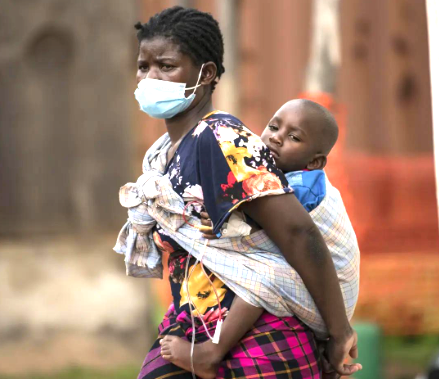The World Health Organisation says it had exhausted its global stockpile of Oral Cholera Vaccines (OCV) by March, though it was able to exceed the emergency target of five million doses in early June for the first time in 2024.
“Yet, the supply of the vaccine does not equate to its demand,” the UN agency laments in a Press statement on Thursday.
cholera fatalities are tragic, given that the diarrhoeal infection is a preventable and treatable disease
Cholera is an acute intestinal infection caused by eating or drinking food or water that is contaminated with faeces containing the bacterium Vibrio cholerae. According to WHO, cholera remains a global threat to public health and is an indicator of inequity and lack of social development.
WHO reported that since January 2024, 16 countries had requested 92 million doses of OCV – almost double the 49 million produced during that time; noting that, alongside the UN Children’s Fund (UNICEF) and other partners, the WHO is working together to use resources to find long-term solutions for cholera.
Only one manufacturer, EuBiologics, currently produces the cholera vaccine
According to a statement on its website, WHO notes that the International Coordinating Group (ICG) on Vaccine Provision has called for urgent fast-tracking of life-saving measures.
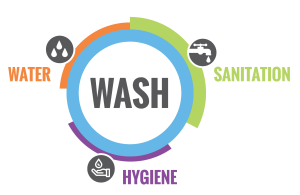 WHO states, “Immediate action is needed to stem an unprecedented multi-year upsurge in cholera cases worldwide, according to the International Coordinating Group (ICG) on Vaccine Provision.
WHO states, “Immediate action is needed to stem an unprecedented multi-year upsurge in cholera cases worldwide, according to the International Coordinating Group (ICG) on Vaccine Provision.
“Actions include investing in access to safe water, sanitation and hygiene (WASH), testing and detecting outbreaks quickly, improving quality of and access to healthcare, and fast-tracking additional production of affordable oral cholera vaccine (OCV) doses to better prevent cases.”
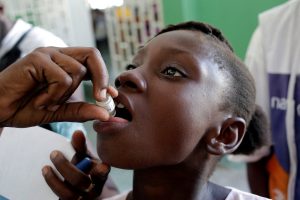
The ICG manages the global cholera vaccine stockpile. The group includes the International Federation of Red Cross and Red Crescent Societies, Médecins Sans Frontières, UNICEF and WHO. Gavi, the Vaccine Alliance, finances the vaccine stockpile and the delivery of OCV.
ICG members are calling for governments, donors, vaccine manufacturers, partners and communities to join in an urgent effort to halt and reverse the rise in cholera.
Cholera has been surging globally since 2021, with the 473,000 cases reported to WHO in 2022, more than double those reported in 2021. Preliminary data for 2023 reveal further increases, with over 700,000 cases reported.
ICG members are calling for governments, donors, vaccine manufacturers, partners and communities to join in an urgent effort to halt and reverse the rise in cholera
Several of the outbreaks have high case fatality rates, exceeding the 1% threshold used as an indicator for early and adequate treatment of cholera patients. These trends are tragic, given that cholera is a preventable and treatable disease and that cases had been declining in previous years.
The rise in cholera is being driven by persistent gaps in access to safe water and sanitation, WHO warns, noting that although efforts are being made to close these gaps in places, in many others the gaps are growing, driven by climate-related factors, economic insecurity, conflict, and population displacement.
“Safely managed water and sanitation are prerequisites for stopping the transmission of cholera,” the UN agency says.
cholera remains a global threat to public health and is an indicator of inequity and lack of social development
Now, more than ever, countries must adopt a multisectoral response to fight cholera, WHO counsels, adding, “Members of the ICG call on currently and potentially affected countries to take urgent steps to ensure their populations have access to clean water, hygiene and sanitation services, and the information critical to prevent cholera’s spread.”
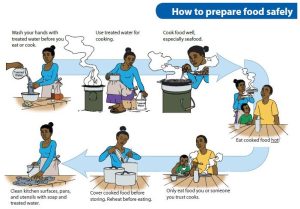
The establishment of these services requires political will and investment at the country level. This includes creating capacity for early detection and response, enhanced disease detection, rapid access to treatment and care, and working closely with communities, including on risk communication and community engagement.
The severe gap in the number of available vaccine doses, compared with the level of current need, puts unprecedented pressure on the global stockpile of vaccines, WHO laments; adding that global production capacity in 2024 is forecast to be 37-50 million doses but will likely continue to be inadequate to serve the needs of millions of people directly affected by cholera.
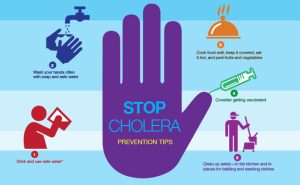
Only one manufacturer, EuBiologics, currently produces the vaccine; while the company is doing its utmost to maximize output, more doses are needed. Currently, new manufacturers are not expected to join the market before 2025; they must be fast-tracked. The same urgency and innovation that we saw for COVID-19 must be applied to cholera.
Additional manufacturers planning to enter the market need to accelerate their efforts and make doses available at affordable prices.
“We appeal to vaccine manufacturers, governments, donors and partners to prioritize an urgent scale-up of vaccine production, and to invest in all the efforts needed to prevent and control cholera,” WHO pleads.

